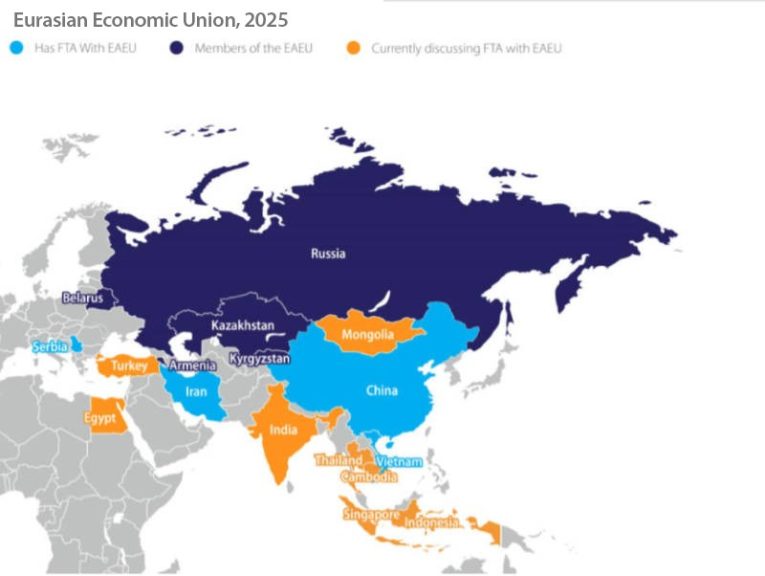The Eurasian Economic Commission, the regulatory body overseeing the Eurasian Economic Union (EAEU), has drafted requirements for use of the Authorised Economic Operator (AEO) system. These were determined at the EAEU headquarters, chaired by Alexander Titov, Director of the Department of Customs Legislation and Law Enforcement Practice, and was attended by about 50 representatives of government agencies and businesses of the countries of the EAEU. It will also impact countries that have trade agreements with the bloc.
The EAEU includes Armenia, Belarus, Kazakhstan, Kyrgyzstan and Russia, and fills the geographic space between Eastern Europe and Western China. The EAEU has FTA with China (non-preferential), Iran, Mongolia, Serbia and Vietnam, while numerous large economies such as India as well as Egypt, Indonesia and the UAE are close to signing trade agreements with the bloc.

The AEO project involves the establishment of a specific accounting system for goods for customs purposes within the EAEU, based on an accounting system that will ensure the traceability of information and provide AEO with simplifications when performing customs formalities.
Such approaches will form the basis for national requirements and facilitate their convergence. This, in turn, promotes equal business conditions for the EAEU countries and makes it possible to apply simplifications throughout the EAEU customs territory.
In addition, the parties discussed initiatives on additional AEO simplifications, which would expand business opportunities, reduce costs, and will be further worked out within the framework of the working group together with the government agencies of the parties.
The issue of law enforcement practice related to the cancellation of the release of goods when applying for release before submitting a declaration (simplified declaration for AEO) in certain cases was also raised. The meeting participants agreed on the need to work out changes to the Procedure for filling out such an application.
The Institute of an Authorised Economic Operator is an internationally recognized partner program standard, while an AEO qualification is a special category of individual who are permitted to provide simplifications during customs operations and customs control as legally responsible persons.
The Working Group on the development of the AEO Institute in the EAEU Member States was established in 2014 and develops proposals for the improvement and development of the institution of an authorised economic operator in the Union.
Current intra-EAEU trade is worth about US$90 billion per annum and grew by 7% in 2024.
Further Reading
Eurasian Economic Union Adopting Intelligent Transport Systems

 Русский
Русский













